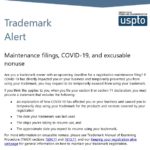Faier on IP Law: Personal Jurisdiction and Rubik’s Brand v. The Partnerships and Unincorporated Associations identified on Schedule A. 2021 WL 825668 (NDIL) March 4, 2021.

This is a great case that raises the thought provoking issue of personal jurisdiction in federal court in instances of trademark infringement. Plaintiff filed suit against 676 online sellers arguing that each infringed plaintiffs with regard to Rubik’s cube.
We get this case because one defendant from China, Yoyoly, showed up to argue that the court did not have personal jurisdiction over it and that it should be dismissed from the lawsuit. The court GRANTED the motion to dismiss.
Judge Tharp explains that a plaintiff must establish jurisdiction over defendant where defendant questions that jurisdiction. The court explained that plaintiff may either establish general jurisdiction or specific jurisdiction. Think of GENERAL JURISDICTION as where defendant is home.
For specific jurisdiction, the court, quoting the Seventh Circuit in Felland v. Clifton, explained that specific jurisdiction means (1) “the defendant…purposefully availed himself of the privilege of conducting business in the forum state or purposefully directed his activities at the state”; (2) the plaintiff’s injury stemmed from the “defendant’s forum-related activities”; and (3) the exercise of personal jurisdiction “comport[s] with traditional notions of fair play and substantial justice.”
Yoyoly provided evidence that while it had an interactive website that no one in Illinois had bought one of its products and it had never availed itself of the Illinois marketplace. The court provided substantial precendent on how an interactive website cannot be the basis of a finding of specific jurisdiction. Yoyoly was dismissed.
Stepping back, we have an important question of balance. How do we protect business people and inventors who invest there lives developing products and see people from outside the U.S. feed off of what the U.S. person created? At the same time, how do we assure that a person not be called into court in some place where he or she never intended to be in business?
I have a modest proposal: require all persons doing business in the U.S. to have infringement insurance. That is to say, a policy on a U.S. carrier where the carrier states the seller is not infringing. Essentially, we put the carriers in the place of policing the marketplace as we do for various kinds of risks like cars, boats, and planes. The carrier would presumably refuse to issue coverage to someone it felt was selling an infringing product. ###













